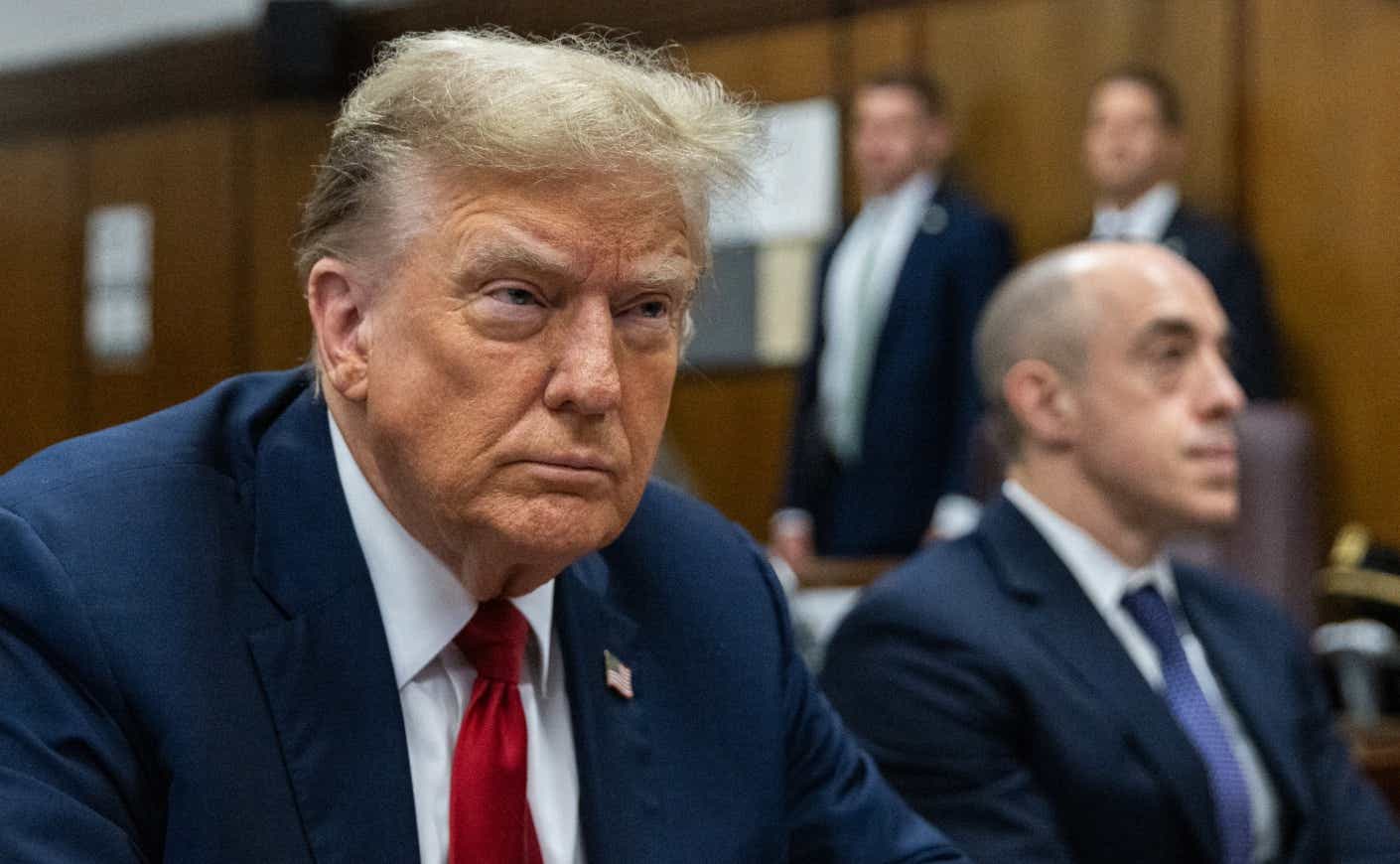For the first time in our nation’s history, a former president is facing criminal charges — and they span four different cases.
Though he's denied any wrongdoing, Donald Trump has been indicted on everything from allegedly plotting to overturn an election defeat to illegally storing classified documents at his Florida estate. Amid pushback from his legal team, some of these cases are making their way through the courts faster than others. His first criminal trial, which relates to his alleged hush money payments, kicked off on Monday with jury selection. He’s now expected to be in court four days a week for the next two months — all while running for a second term (which he could still win, even if he’s convicted).
You're probably seeing multiple headlines about each of these cases several times a week, so it's gotten challenging to stay on top of which is which. To help keep it straight, here’s a rundown of his criminal cases and what they entail.
New York hush money scheme
In the first of his four criminal cases, Donald Trump faces a 34-count indictment in the New York investigation into his alleged role in a hush-money scheme during his 2016 presidential campaign.
The charges center on allegations that Trump falsified internal business records at his company, The Trump Organization, to hide payments to his then-personal lawyer Michael Cohen, who was tasked with covering up the former president’s affairs with Playboy model Karen McDougal and adult film star Stormy Daniels.
Cohen paid Daniels $130,000, and he also arranged for the publisher of the tabloid the National Enquirer to pay McDougal $150,000. The Trump Organization then reimbursed Cohen, along with some bonuses. Over several months, Cohen said he received $420,000 to silence both women.
Donald Trump has repeatedly assailed the investigation, dismissing the indictment as “political persecution.” But if he’s convicted, he could face up to four years in prison.
Georgia election interference case
Trump, along with 18 of his allies, was indicted in Georgia last August over their efforts to reverse President Joe Biden’s victory in the state in the 2020 election. A total of 41 charges were brought against them, with Trump facing 13 counts.
The nearly 100-page indictment details dozens of instances in which Trump or those in his circle tried to reverse his defeat. In one particularly brazen act, the former president was caught on tape pressuring Georgia Secretary of State Brad Raffensperger to "find" him enough votes to secure a victory. “All I want to do is this. I just want to find 11,780 votes,” Trump said at the time.
Then there was the alleged effort to replace Georgia’s Democratic presidential electors with ones who would vote for Trump, plus the harassment of Fulton County election workers.
The former president has continued to insist that he’s done nothing wrong — but that will be up to Fulton County Superior Court Judge Scott McAfee, who has yet to set a trial date for Trump. Still, it’s worth noting that the law he’s being charged under, the Racketeer Influenced and Corrupt Organizations Act (RICO), alone carries a penalty of five to 20 years in prison.
Federal election case
Trump’s third indictment is a result of special counsel Jack Smith's investigation into alleged efforts by the former president and his allies to overturn the 2020 election results.
His four counts include charges of conspiracy to defraud the United States government and conspiracy to obstruct an official proceeding (that proceeding being the congressional certification of Biden’s victory). It also details how the former president pushed election fraud lies and sought to exploit the pro-Trump mob's attack on the U.S. Capitol on Jan. 6, 2021, by trying to convince then-Vice President Mike Pence to delay the certification of Biden’s win.
The most serious charges carry up to 20 years behind bars, but it's unclear just how much time he could face — or if he's even eligible to face that time. The Supreme Court is expected to hear arguments next week over whether the former president can be prosecuted for election interference.
Classified documents case
Trump was charged with illegally holding onto classified documents that he took from the White House to his Mar-a-Lago estate after he left office in January 2021. Following an investigation by the Justice Department (headed by Smith) and an FBI raid, more than 13,000 documents containing top-secret information related to national security were eventually recovered.
Trump was later hit with additional charges accusing him of conspiring to erase security footage at his property and repeatedly asking aides and employees to help him hide the sensitive material from officials. He also showed off a Pentagon “plan of attack” and a classified map to visitors at one of his golf courses.
The trial is set to start May 20, but Judge Aileen Cannon said she's likely to delay it. Trump's lawyers have already made several motions to dismiss the case, moves that lower the chances of a trial before the election. In all, Trump faces 40 felony charges in the classified documents case. The most serious charge carries a penalty of up to 20 years in prison.









